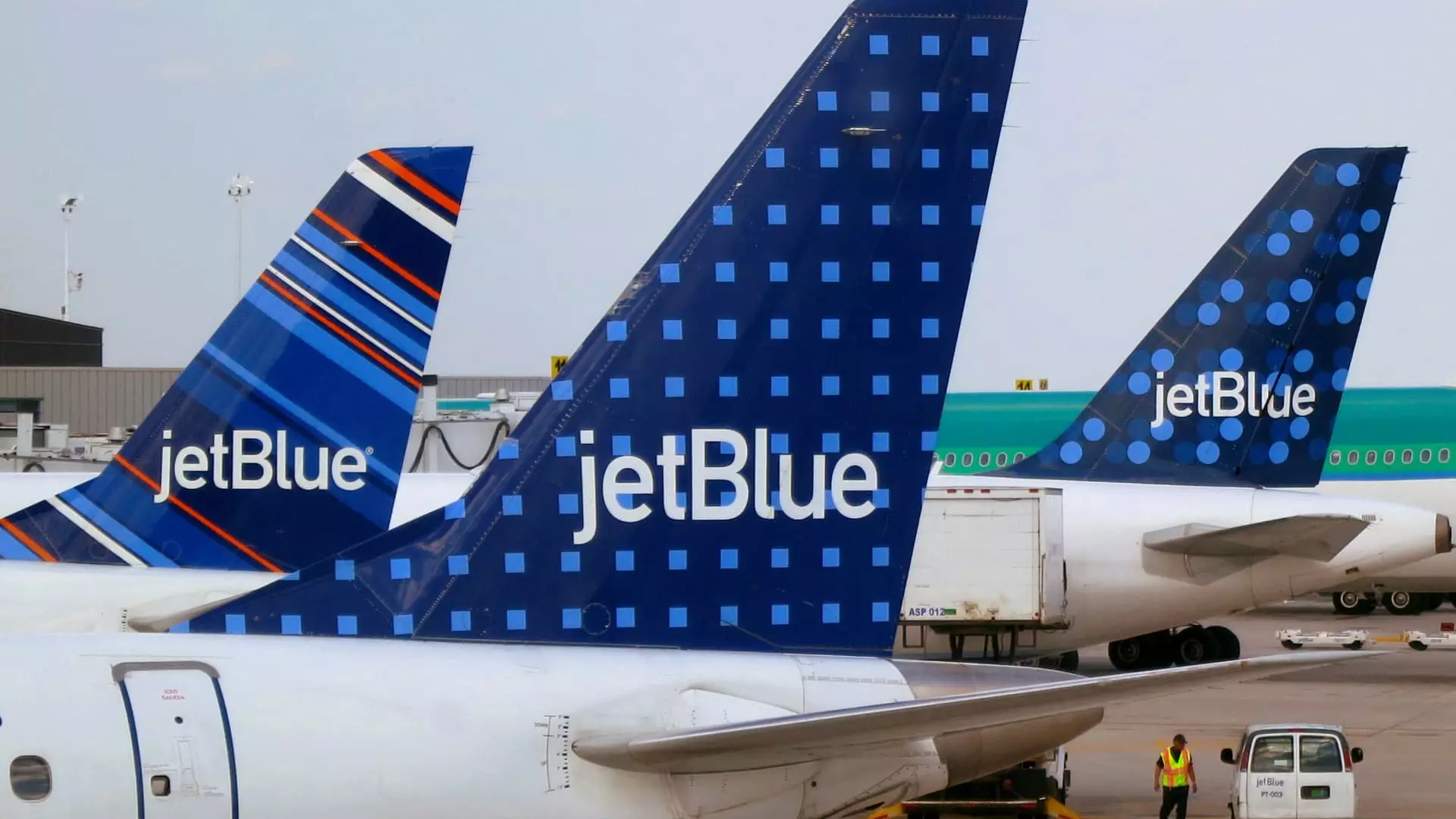In an unprecedented move, the Department of Transportation (DOT) has levied a $2 million fine against JetBlue Airways, spotlighting the airline’s chronic flight delays. This penalty, which marks the first of its kind, is a significant indicator of how seriously the government is taking issues of flight reliability and consumer protection. The fine stems from a staggering number of delayed flights—145 reports of tardiness were outlined by the DOT, where JetBlue’s operations fell severely short of passenger expectations. This raises concerns regarding not only JetBlue’s operational integrity but also points toward a larger issue within airline practices that may be affecting countless travelers.
The flagged routes included critical connections between New York City, North Carolina, Florida, and Connecticut, which are heavily trafficked corridors that demand reliability. Yet, despite this demand, the airline failed to meet even the basic standards of punctuality. Secretary of Transportation Pete Buttigieg emphasized that JetBlue’s persistent delays should serve as a cautionary tale for the entire industry, underscoring the necessity of aligning flight schedules with reality. This incident has ignited dialogue about accountability across the board, raising the question: are airlines doing enough to ensure that they maintain dependable service?
The DOT has defined “chronically delayed” flights as those that are repeatedly late—specifically, those that arrive more than 30 minutes past schedule more than half the time when operated at least ten times a month. In JetBlue’s case, the airline was found to be responsible for over 70% of the disturbances reported for the four specified routes. This not only reflects a severe operational oversight but poses the question of whether airlines should be held more stringently accountable for their flight schedules. The investigation was broad, with the DOT also revealing that they are scrutinizing other airlines for similar scheduling practices that could mislead passengers and disrupt travel plans.
In a broader context, this issue aligns with the Federal Aviation Administration’s ongoing challenges related to air traffic control staffing and technology. With JetBlue ranking a lowly ninth out of ten airlines in terms of on-time arrivals, the situation calls for urgent reforms within the industry, specifically in how airlines handle scheduling and communicate with their passengers.
In response to the fine, JetBlue has indicated that while they have reached a settlement, they believe that the responsibility for air travel reliability also falls on the U.S. government. Their statement emphasized the need for a modernized air traffic control system and better staffing for air traffic controllers. This sentiment resonates with concerns raised by executives from other major airlines, suggesting a systematic issue that transcends individual carriers.
JetBlue’s perspective positions them as both a victim of circumstances and an entity needing reform. It opens the discussion around shared accountability—how much responsibility lies with airlines in terms of operational management versus the structural challenges imposed on them by existing government systems. Additionally, JetBlue noted that they plan to credit $1 million of the fine back to affected passengers in the form of vouchers, which somewhat softens the blow of the significant penalty but does not erase the frustration experienced by travelers.
As the airline industry emerges from the pandemic, restoring consumer confidence in travel reliability is paramount. Government regulators are tasked with enforcing standards that not only safeguard passengers but ensure that airlines adhere to protocols that prevent chronic delays. With the increasing scrutiny and regulatory oversight, other airlines should take heed from JetBlue’s predicament.
Ultimately, the fallout from this fine could pave the way for more stringent regulations around operational standards, potentially reshaping how airlines approach scheduling and customer service. For travelers, the hope is that such revelations will lead to improved reliability, fewer delays, and a more transparent airline industry moving forward. The focus now shifts to whether airlines can truly adapt and respond to these challenges, or if they will continue to fall back on excuses, frustrating their customers and running the risk of further regulatory action.

